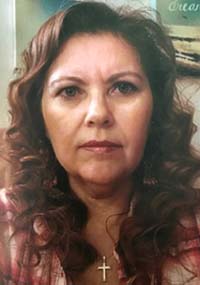- Home
- |
- About
- |
- Communities
- |
- Programs/Services
- Dakota Ojibway Child and Family Services
- Dakota Ojibway Tribal Council Housing Authority
- On-Reserve Housing Program
- Dakota Ojibway Community Futures Development Corporation
- Dakota Ojibway Health Services
- Manitoba First Nations Police
- Yellowquill University College
- Social Development
- School Maintenance Training Program
- |
- News
- |
- Events
- |
- Careers
- |
- Contact
Dakota Ojibway Tribal Council
Clinical Team
Aboriginal Diabetes Initiative (ADI)
The Goal of the Aboriginal Diabetes Initiative (ADI) is to reduce type 2 diabetes among First Nations. The Tribal Diabetes Coordinator (TDC) supports Dakota Ojibway Tribal Council (DOTC) community's ADI programs by supporting health promotion, primary prevention activities and services delivered by community ADI workers.
The TDC also provides support services that include Capacity development, liaison, orientation, advocacy, and coordination for the ADI workers.

Jessica Flett RN,BN
Tribal Diabetes Coordinator-TDC
Community Care Program
The primary objective of the home and community care program is to deliver home care services to assist First Nations living with illness in maintaining optimum health & independence in their homes & communities.
Program Elements:
A structured client assessment process that includes ongoing reassessments & determines clients need. It is a managed care process that incorporates case management, referrals, service linkages with other professionals & therapeutic services, as well as provision of medical supplies & equipment.
Supportive Elements may also be provided which may include:
respite care, adult day care, meal programs, medication monitoring, home based end of life care services.
The THCC supports the DOTC communities home care programs through clinical advisory, advocacy, liaison, capacity development, orientation, and coordination.

Debbie Braun-Hunter RN
Tribal Home & Community Care Coordinator -THCCC
The Tribal Nursing Officer (TNO)
The Tribal Nursing Officer (TNO) works with the Dakota Ojibway Tribal Council (DOTC) membership communities to support their community health programs. The community health programs have mandatory & discretionary program components that include:
Mandatory Program Requirements:
- Access to Care
- Communicable Disease Control
- Environmental Health
- Emergency Response Planning
Discretionary Program Requirements:
- Health Promotion
- Injury Prevention
The TNO supports the DOTC membership communities through the following objectives:
- Clinical Advisory
- Liaison
- Capacity Development
- Coordination
- Advocacy

Shannon Wilson RN,BN
Tribal Nursing Officer-TNO
Children's Oral Health Initiative (COHI)
COHI is a community-based initiative that aims to prevent tooth decay and improve oral/overall health among First Nations children. Goals of the program are to:
- Reduce and delay dental decay
- Reduce the need for extensive dental treatment involving general anesthetic
- Work with community partners to provide proven early interventions
- Improve families' understanding of their role in promoting oral health as part of a healthy lifestyle
COHI currently focuses on children age 0 to 7 and their families, as well as expectant mothers. It provides practical prevention and early intervention services. COHI Dental Professionals use proven dental techniques to help communities achieve program goals. Services include: dental screening, referrals, fluoride treatments, pit & fissure sealants, temporary fillings, oral health instruction, community oral health promotion activities, etc.

Alyson Candline RDH
Children's Oral Health Initiative Dental Hygienist (COHI-DH)
Contact Us
230-5010 Crescent Road W
Keeshkeemaquah, Manitoba, Canada, R1N 4B1
x 204-239-8650 A execadmin@dotc.mb.ca
Quick Links
Copyright © 2026 Dakota Ojibway Tribal Council. All Rights Reserved.